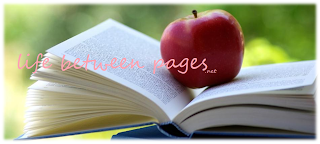"It is good to renew one's wonder," said the philosopher.
"Space travel has again made children of us all."
Having just finished Ray Bradbury's The Martian Chronicles and with it fresh in my mind I thought I would write a book review which is something I haven't done in a while.
Science Fiction isn't something that I read regularly- in fact I have probably only ever read a handful of books from this genre in my life so far.
However, this book has been on my TBR pile for some time now. This is because I remember the 1970's TV adaptation starring Rock Hudson from when I was a child. The story fascinated me a great deal and I watched it several times, but it was many years before I realised that it was an adaptation of a book.
The book was written in 1950 by American author Ray Bradbury who was responsible for other classics such as The Illustrated Man, Fahrenheit 451 and Something Wicked This Way Comes.
The blurb says
The Martian Chronicles tells the story of humanity's repeated attempts to colonize the red planet. The first men were few. Most succumbed to a disease called the Great Loneliness when they saw their home planet dwindle to the size of a fist. Those few who survived found no welcome on Mars. But more rockets arrived from Earth, and more. People brought their old prejudices with them-and their desires and fantasies and tainted dreams.The book is written as a series of short stories linked together by the common theme of man's exploration to and eventual colonisation of Mars.
The stories are set in the future (from Ray Bradbury's perspective,obviously) beginning in 1999 and are told from both the point of view of the human interlopers and The Martians. They contain a mixture of sympathy for the Martians and distaste for the way that the human invaders treat the planet. Having destroyed Earth with their greed and wars, they seem destined to make the same mistakes all over again.
Being a budding writer myself, I am always interested to know where an author gets his/her inspiration. In an interview, Bradbury said that he was inspired to write the book when as a 12 year old boy he saw photographs of the planet Mars and Schiaparelli's drawings of the canals on Mars. He also said that he read The Gods of Mars by Edgar Rice Burroughs as a boy but couldn't afford to buy the sequel and so he wrote The Martian Chronicles to fill this gap.
I enjoyed all of the stories but my favourites are 'The Third Expedition' which is sinister and 'The Martian' which gave me shivers down my spine as I read it.'The Martian' begins with an elderly couple, LaFarge and Anna, who live in a remote area of Mars. It is a windy and rainy night and they have just gone to bed when they hear a noise.
He put on his robe and walked through the house to the front door. Hesitating he pulled the door wide, and rain fell cold upon his face.The wind blew.
In the dooryard stood a small figure.
Lightning cracked the sky, and a white wash of colour illumined the face looking in at old LaFarge there in the doorway.
"Who's there?" called LaFarge, trembling.
No answer.
"Who is it? What do you want?"
Still not a word.
I love the simplicity of the prose which nevertheless builds suspense and spookiness. It flows along and you find yourself drawn into an alien world of craters and barren landscapes.
I absolutely loved this book and would recommend it to anyone, even those who do not usually read this genre. I will definitely be adding it to my Top 50 favourite books of all time.
The only downside of this is I absolutely have to read his other books and so have now added his entire catalogue of works to my TBR pile! Will it ever get any smaller? Sigh :)
I give this a rating of 10/10
Have a good weekend everybody
x




























